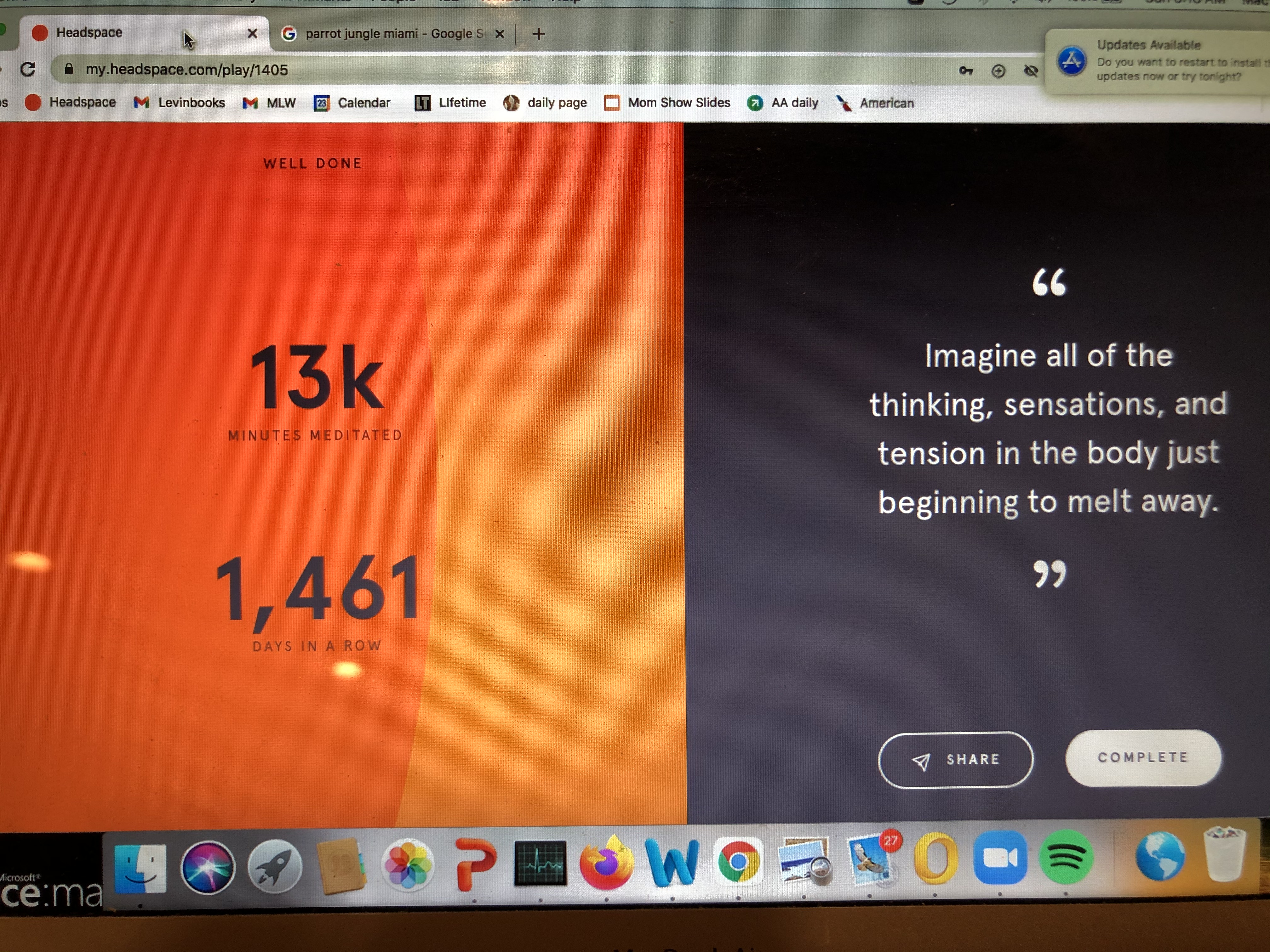By New York Times Bestselling Author Michael Levin

Today’s the day—I have now meditated with the Headspace guided meditation app 1,461 days in a row, which equals four full years.
That equals the length of a presidential term, and if you don’t believe me, you can log into my Headspace app and see for yourself.
Okay, I’m not going to let you do that. You have to take my word for it. But it’s true.
Headspace is the brainchild of a former British monk named Andy Puddicombe who took what he learned about meditation and turned it into one of the most wildly popular and successful apps in the history of, well, apps.
Puddicombe, in his soothing English accent, along with a few guest teachers, teaches you everything from the basics of meditation to using meditation as a tool for managing stress, getting to sleep, getting your day going, studying, rehab from sports injuries, relationships, conscious eating, and a wide variety of other topics.
The meditations are arranged into packs of 10 to 30 sessions with one-offs for issues like getting back to sleep after a nightmare, running, walking in nature, or, somewhat inexplicably, walking in Pittsburgh.
The meditations typically run from three minutes to ten minutes, although some, including the running meditations, in which he shares the microphone with Nike’s worldwide head of running, Chris Bennett, somewhat longer.
The reason I meditate daily without fail is because Puddicombe gamified the act of meditation. In other words, he put a day counter on it, which induces a slight sense of terror that if I don’t meditate today, I will have lost my run streak.
Brilliant.
I’ve meditated with Headspace in airports, in bed, while running the Boston Marathon, while lying on the floor, while walking in nature…everywhere, frankly, but Pittsburgh.
To put it simply, I really love Headspace.
Let me share with you what I’ve learned.
First, there is an alternative for me to listening to my constant stream of thought.
It’s not so much about turning the thought-machine off, which is otherwise known as, well, being dead. Instead, it’s about becoming conscious about the other sounds that exist in the world—the hum of the refrigerator, the chirp of birds, the sensation of air against one’s skin, the feeling of having one’s behind planted in a chair.
If this were the only benefit of Headspace, dayenu—it would be enough.
But wait, there’s more.
Puddicombe uses meditation as a tool for teaching compassion.
One of the themes to which he returns on a regular basis is that whatever you are going through, whatever suffering you are experiencing, millions of other people are experiencing the same thing.
This shifts one’s focus from, “Why me?” to “We’re all in this together.”
That’s a pretty big deal.
Headspace is easy to use; when you choose a 10-day pack, the next day’s installment appears automatically. All you have to do is push a button, listen, and breathe. (Remember breathing? It’s what you did before the pandemic started.)
Most of the meditations are guided, which means that you hear Andy’s voice introducing the day’s meditation and then intermittently until the conclusion.
Others are unguided. These are the “pro-level” meditations. I am not aware of anyone who would pay me to meditate, which would make me a true professional meditator, but I’m certainly open to offers.
So if you’re looking for an answer to the urban ills of our time, the stress and frustration of politics and the COVID era, and just an alternative to the raging river of talk, talk, talk that our minds ceaselessly generate, give Headspace a chance.
If you don’t feel more centered, compassionate, and relaxed, I’m sure that Andy Puddicombe will cheerfully refund your subscription.
And I’m sure he won’t need to, because you will be very, very happy with Headspace.

